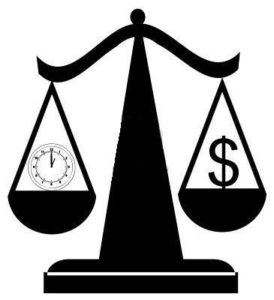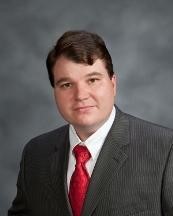
Reliance on Automated Database Held Sanctionable
Happy Holidays from The Sharp Law Firm, P.C.!
Sharp Thinking
Thinking
No. 55 Perspectives on Developments in the Law from The Sharp Law Firm, P.C. December 2011
Rules 11, 9011 . . .
Reliance on Automated Database Held Sanctionable
By Bentley J. Bender, BBender@lotsharp.com, 618-242-0246

Bender
Bankruptcy Rule 9011 is modeled after Federal Rule of Civil Procedure 11 and is “essentially identical” to Rule 11. In re Park Place Assocs., 118 B.R. 613, 616 (Bankr. N.D. Ill. 1990). The rule provides that by filing a document with the court a party is certifying that to the best of that person’s knowledge, information, and belief, formed after an inquiry reasonable under the circumstances, that the allegations and other factual contentions have evidentiary support and the legal theories expounded therein have merit. Rule 9011. “The central goal of Rule 11 is to deter abusive litigation practices.” Corley v. Rosewood Care Ctr., Inc. of Peoria, 388 F.3d 990, 1013 (7th Cir. 2004). Thus, the concern of Rule 9011 is not the truth or falsity of the representation in itself, but rather whether the party making the representation reasonably believed it at the time to have evidentiary support. To impose sanctions pursuant to Rule 9011, the court need not find that a party acted in bad faith, but instead merely needs to find the complained-of conduct to be objectively unreasonable. Fellheimer, Eichen & Braver-man, P.C. v. Charter Tech., Inc., 57 F.3d 1215, 1225 (3d Cir. 1995).
While the standard imposed by this rule can be succinctly summarized, its application in practice has resulted in controversy, especially in the context of the continuing boom in mortgage foreclosures and their pursuit following a bankruptcy filing. Recently, the Third Circuit seized the opportunity to address this rule’s application in such a context. In re Taylor, 655 F.3d 274 (3d Cir. 2011). The court’s review of the conduct of the attorneys in the proceeding ultimately resulted in sanctions against both the firm and the lender for misstatements contained in a motion for relief from the automatic stay.
I. Literal Truth of a Statement Does Not Preclude Sanctions.
In reaching its decision, the Third Circuit considered statements in the motion suggesting that the debtors had failed to remit regular monthly payments on the mortgage and lacked equity in their residence. Counsel for the lender argued that the statements were literally true as the debtors had not made full payments upon the mortgage, but rather only partial payments. Citing to Williamson v. Recovery L.P., 542 F.3d 43, 51 (2d Cir. 2008), the court refuted this argument by asserting that if the reasonably foreseeable effect of the representation to the Bankruptcy Court was to mislead that court, then counsel still failed to comply with Rule 9011. In re Taylor, 655 F.3d 274, 283 (3d Cir. 2011). In this instance, the court was led to believe that no payments had been made, when in fact the debtors had been submitting payments that did not include disputed forced-place insurance fees. Furthermore, the court noted that there was no literal truth to the statement that the debtors lacked equity in the residence and counsel conceded that the statement was part of a form pleading, as they had no particularized knowledge of debtors’ equity or lack thereof.
II. Reliance Solely on Information Provided by the Client is Insufficient.
Good faith alone is not enough to comply with Rule 9011. Indeed, “Rule 9011 imposes an affirmative obligation upon counsel to conduct a reasonable inquiry into both the law and the facts before advancing a particular position to the court.” In re CMGT, Inc., 458 B.R. 473, 485 (Bankr. N.D. Ill. 2011). As the Seventh Circuit has observed, “an ‘empty head but a pure heart is no defense.” Chambers v. American Trans Air, Inc., 17 F.3d 998, 1006 (7th Cir. 1994). While it is usually reasonable for a lawyer to rely on information provided by a client, an attorney must make a reasonable effort to determine what facts are likely to be relevant to a particular court filing and to seek those facts from the client. In this case the court found that counsel relied solely on an automated system which permitted the client to narrowly define the information available to counsel.
The inadequacy of the automated system should have been readily apparent, according to the  court, as it failed to disclose any information concerning equity in the home, the flood insurance dispute and the payments that had been made. Furthermore, the court stated that once the debtors responded to the motion, any reasonable attorney would have sought clarification and further documentation from the client, in order to correct any prior inadvertent misstatements and to avoid further errors. In re Taylor, 655 F.3d 274, 284-85 (3d Cir. 2011). The overreliance of the firm upon the automated system resulted in sanctions, despite the fact that “Rule 11 sanctions are . . . to be granted sparingly” and “should not be imposed lightly”. Lefkovitz v. Wagner, 219 F.R.D. 592, 592-93 (N.D. Ill. 2004), aff’d, 395 F.3d 773 (7th Cir. 2005).
court, as it failed to disclose any information concerning equity in the home, the flood insurance dispute and the payments that had been made. Furthermore, the court stated that once the debtors responded to the motion, any reasonable attorney would have sought clarification and further documentation from the client, in order to correct any prior inadvertent misstatements and to avoid further errors. In re Taylor, 655 F.3d 274, 284-85 (3d Cir. 2011). The overreliance of the firm upon the automated system resulted in sanctions, despite the fact that “Rule 11 sanctions are . . . to be granted sparingly” and “should not be imposed lightly”. Lefkovitz v. Wagner, 219 F.R.D. 592, 592-93 (N.D. Ill. 2004), aff’d, 395 F.3d 773 (7th Cir. 2005).
III. When a Misstatement is Discovered, Counsel Should Swiftly Remedy Same.
In deciding to sanction counsel in Taylor, the court noted that counsel had attempted to prosecute its motion even after learning of its misstatements. This resulted in a failure to comply with the “safe harbor” requirement under Rule 9011(c)(1)(A). That provision gives the offending party the opportunity, within 21 days after service of a motion for sanctions, to withdraw or correct the offending pleading in order to avoid imposition of sanctions. Divane v. Krull Elec. Co., 200 F.3d 1020, 1025–26 (7th Cir. 1999). The provision “serves the laudable purpose of requiring litigants to dispose of frivolous claims without judicial involvement.” In re Dental Profile, Inc., 446 B.R. 885, 899 (Bankr. N.D. Ill. 2011). As a result, in the event that one inadvertently fails to conduct a reasonable inquiry and makes a misleading statement to the court, sanctions may be avoided if measures are taken to swiftly correct the offending conduct. Such a remedial course of action likely could have prevented the sanctions ultimately awarded by the court in Taylor.
THE SHARP LAW FIRM, P.C.
1115 Harrison, P.O. Box 906, Mt. Vernon, IL 62864 • Telephone 618-242-0246 • Facsimile 618-242-1170
Business Transactions • Litigation • Financial Law • Problem Finances • Real Estate • Corporate • Commercial Disputes • Creditors’ Rights •
Arbitration • Employment Matters • Estate Planning • Probate
55
